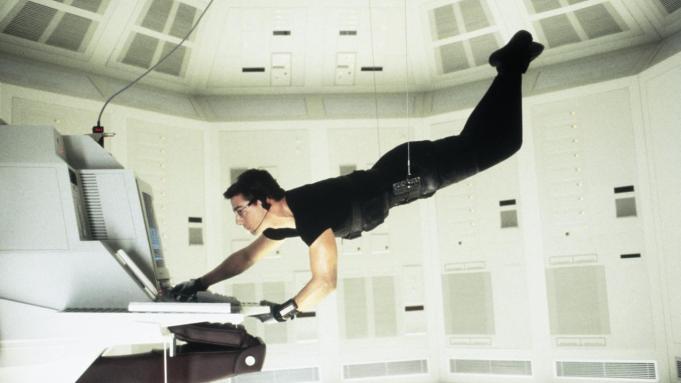By Zac Ntim
EXCLUSIVE: As the 57th edition of the Czech Republic’s Karlovy Vary International Film Festival (KVIFF) kicks off Friday, there will be renewed interest in the central European country’s local industry, particularly the curious case surrounding its incentive program for international productions.
The Czech government suspended film production incentives in early 2022, citing strains on the public purse due to the cost of providing humanitarian and military aid to Ukraine. Officials said the pause would be temporary, but the country went almost a year without a set incentive plan, meaning no new projects could register to film in the country for months.
The incentive program is back at 20%, with a new 150 mil czk ($6.8 mil) cap per project. The setup means the Czech Republic now lags behind the 30% in neighboring Hungary and Poland. Both houses of the Czech parliament have approved the plans and officials are writing it into the country’s law. Industry expects all to be ratified by 2024.
“It should have been written a month ago but we’re still working on it because it needs to be perfect,” Pavlina Zipkova, Head of the Czech Film Commission told Deadline. “There is a drive from the government and the Czech Film Fund to get it done, so we’ll see what comes of it.”
The Czech Republic first experienced a modern international production boom in the late 90s with big Hollywood productions Tom Cruise’s first Mission: Impossible pic and The Bourne Identity shooting in Prague. Recent titles that have used the city’s ancient cobbles as a backshot include Amazon’s Carnival Row, starring Orlando Bloom and Cara Delevingne, and Netflix’s The Gray Man starring Ryan Gosling.
The country was also one the first in Europe to give productions the green light to restart during the covid pandemic, attracting high-profile projects like Edward Berger’s multi-Oscar-winning All Quiet On The Western Front. Robert Eggers also recently wrapped his Nosferatu shoot in Prague. This constant demand, Zipkova told Deadline, is the driving force behind the legislative changes.
“The previous production law was set up in 2012. That was well before the global thirst for content. The audiovisual world is very different now compared to 11 years ago,” Zipkova said.
Below, Zipkova digs deeper into the incentive restructure, the current health of the Czech industry, and how the country is managing what she described as the “huge” demand to shoot in the country from industry productions.
DEADLINE: What is the current health of the Czech market?
PAVLINA ZIPKOVA: We are in a good position and are moving in a good direction. We are at the final stage of rewriting the new act on audiovisual law. When it’s written, we should be able to accommodate more productions with our incentive program.
DEADLINE: Can you break down what has happened with the incentive? How did it break down?
ZIPKOVA: I wouldn’t say it broke down. The demand to shoot in the Czech Republic is just huge. It is unbelievable. It’s partly thanks to the fact that we are right in the middle of Europe and have buildings that date back to the 11th century. We also have great infrastructure and crews. So the demand is massive even though we only have a 20% incentive. The main reason for writing the new law is to try to create some uplift to the production incentive so that we can accommodate more. People need to realize that the Czech Republic has only 10 million citizens. So it doesn’t make sense to compare us to any other big production hub, most of whom have many more inhabitants. The incentive comes directly from the national budget, which the country’s citizens create. So it is challenging to finance production incentives when the demand is so huge, but the fund is created by only 10 million inhabitants. This is something that producers don’t realize. You cannot compare us with Britain or France.

DEADLINE: How is the new law being drafted?
ZIPKOVA: The new law is being written by the Czech Film Fund and the Czech Ministry of Culture, which gathered 25 to 30 people from all the different audiovisual departments who comment on the law and return it to the Film Fund. The entire industry is participating, and maybe that’s why it’s taking so long.
DEADLINE: Has the demand to shoot in the Czech Republic dropped because of the delay?
ZIPKOVA: No, it hasn’t. The studios are still very interested and they are eager to support us. They are looking forward to the new law being enacted, and so are European producers that usually shoot over here like Germany. It comes and goes in waves. But that’s like every year, no matter the financial condition. So I would say the demand is still the same as years before.
DEADLINE: What do you think about this thirst for content? Do you think it’s a good phenomenon?
ZIPKOVA: The demand is at its peak, and it’ll probably drop. That seems to be the consensus: To produce less and focus on more quality content. To speak generally, it’s not a good sign for the human race. We should be using our imaginations and reading more. I know I’m now talking against my industry, but I don’t think the current speed is good for us.
DEADLINE: How is the local industry holding up?
ZIPKOVA: The Czech film fund now has a range of financial schemes to support local producers. The fund covers films from early development to festival release, which has been doing a great job. The aim is now to support fewer movies but with more money. We have a tradition of supporting movies with public financing, and it’s a tradition we intend on maintaining.
DEADLINE: What is the one thing you’d say makes the Czech Republic different from other markets?
ZIPKOVA: We have amazingly skilled crews. No matter if the incentive program is interrupted, the crews are still here. Filmmaking started here over a century ago, and it’s never been interrupted despite the regime, so our development has been continuous. We always continue working despite the political environment.
Subscribe to Deadline Breaking News Alerts and keep your inbox happy.




Leave a reply